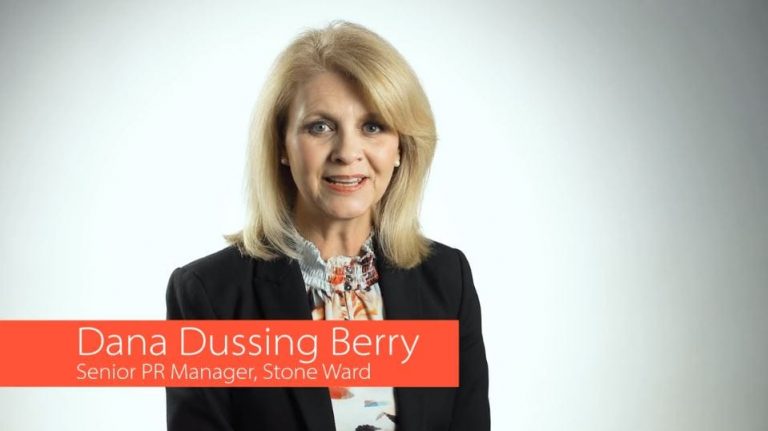Look! In the sky…it’s a bird, it’s a plane, it’s an analytics superhero!
While there is an ever-increasing amount of collected data (global data volume is now measured in the zettabytes – which is a trillion gigabytes), there is also a sharp, parallel increase in the depth of experience and skill necessary to successfully create and capture the critical value obtained from this data.
Throughout my analytics career – currently as the senior analytics manager at Stone Ward and the founder of the Chicago Analytics Group — I have researched, acquired, innovated and constantly pursued knowledge pertaining to my field. This was ultimately in order to advance the value of analytics work that I could share with my colleagues and clients.
I’ve learned some great best practices along the way. Many times, these were learned through the time-tested method of trial and error. And pretty much all were learned by being a passionately curious and determined individual.
One of the most rewarding professional accomplishments I’ve enjoyed over the past decade is that of mentorship – both receiving and giving. I truly believe in the vast good of collaboration, especially professionally. So, I am more than happy to empower other analytics professionals with what I’ve learned.
Stop. Collaborate. And Listen.
These aren’t just Vanilla Ice lyrics, but a recipe for gaining invaluable perspective on any potential analytics opportunity. Make sure to invest adequate time in each one of these disciplines, as each are monumentally important. Stop telling yourself you can’t do or achieve something – eliminate that invisible barrier right now; collaborate with your colleagues to share business and strategy insights; and most important of all – listen. You may just learn something incredible. Participating in active listening is not only beneficial to your professional but personal growth as well.
Become a Master of the Difficult and Unknown.
The future is everything. And the future is unknown. To unlock the value from what analytics can do for your company and clients well into the future, become familiar with not being familiar with subject matter, processes, terminology and potential solutions to analytics opportunities. It is important to fully understand and be humbled by the massive landscape of analytics. Similar to applying the Socratic Method, you must realize that there is much knowledge to be gained in asking the right questions and not letting an ego become a potential detriment to this. Be the first to admit you may not know the answer. But also be the first to find the optimal process for determining the appropriate answer. Be honest with yourself, your company and your clients. This will enable trust and foster a strong, strategic partnership.
Never Stop Learning. Never Stop Optimizing Everything.
Analytics, continually advanced by both improving technologies and innovative data processes, never stagnates. There will always be fresh new methodologies, expert-level perspectives and areas for improvement. Try not to get overwhelmed on the vastness or complexity of analytics opportunities, but rather focus on how you and your team can systematically add value to those opportunities. Never stop optimizing these opportunities. One way to become incredibly efficient at this is to develop advanced critical thinking skills, so you can diagnose, determine and place value on analytics opportunities and match them with your team’s capabilities.
Understand Analytics is (or at least should be) a Verb, not a Noun.
Just as the vast landscape of analytics is ever changing and evolving, it is important to realize that how you use and leverage analytics within your company and for your clients, should be customized and evolve to their specific needs; addressing real questions, real opportunities and achieving very real results. It is incredibly important to understand that analytics is a moving process by which continual improvement occurs, and through which real value is created and captured.
Fully Implement and Capture all the Potential Benefits from Analytics.
When fully activated and deployed, analytics can provide invaluable results. Generally, these come in the form of innovation and growth opportunities, but there are many different avenues for an analytics team to deliver real results and value. In fact, the wide range of valuable benefits from analytics can come anywhere from operational or procedural improvements all the way to customer product or service improvements. Be sure to not only fully activate your analytics strategy, but also recognize and capture the benefits from these for continued success.
Be Flexible in Your Analytics Approach. Be Rigid in Goal Definition and Achievement.
Be sure to ask the most challenging questions early on in analytics projects to determine appropriate approach, method and goal definition. But also be open to new and differing approaches offered by either colleagues or approaches which organically present themselves along the timeline of an analytics project. You may be entirely surprised by what an alternative approach may produce in terms of solution quality and benefit. Having said this, be rigid on goal definition and achievement. Ensure you are always tying your analytics solution back to the achievement of specific goals, so you can most accurately track project success. Like anything in analytics, observation and insight from tracking project success can lead to timely optimization and benefit.
Understand that Context is King in Analytics.
One of the greatest insights I’ve picked up from analytics conferences within the past year is that “if content is king in marketing, then context is king in analytics.” What this simply means is that there is a lot of value in knowing why a specific analytics opportunity has presented itself or been created in some way; and subsequently how the appropriate solution(s) to that analytics opportunity will affect every aspect of the marketing strategy that gets implemented. It is a very holistic way of understanding how analytics plays a major role in your company and for your clients.
Simplify the Complicated. Understand and Make Advanced Processes Categorically Valuable.
There’s a saying that numbers aren’t inherently complicated, but that humans make them so. The same can be implied to analytics. At the highest level, the development and utilization of analytics allows for data to be turned into timely, actionable insight, which can, in time, be transformed into knowledge and allow for improvement and advancement. What complicates and delays the process, more often than not, are the unexpected hurdles analytics professionals run into along the process; and then, the expected outcomes along segmented portions of the process. Two time-tested ways I’ve discovered to remedy this are: 1) map out the entire analytics process, along with expected outcomes, for a project (yes, I know how tedious this may seem at first) and track both expected progress and unexpected hurdles; and 2) with more advanced analytics projects, segment the process into sections where valuable insights and efficiency gains were made. Doing this not only allows you to be informed of exactly where you need to more effectively plan analytics opportunities, but also allows you to categorize analytics sub processes into marketable capabilities for current and future clients.
Become the Strategic Catalyst for Insight, Innovation and Growth.
Empower others in your company and empower your clients. Uncover valuable insights and turn business data into business knowledge. Make information timely and actionable. Most importantly of all, respect your fellow collaborators and become a true strategic partner with your clients. Know and understand their deepest level needs, formulate those into applicable analytics strategy and always strive to deliver the upmost in both internal and external client satisfaction. This will ultimately drive what your strategic partners value most: timely insight, valuable innovation and future growth.
Start/Develop Centers of Excellence for Analytics.
Last year, right before I got married and went on my honeymoon, I realized the magnitude of the wide range of analytics clients and projects I was working on at the time. In order to ensure all of my projects and more importantly – the value delivered to my clients – didn’t skip a beat while I was gone, I developed a Center of Excellence. This tool was constructed with the end user in mind, where someone could open it up, look at a specific client and readily understand all of the necessary action steps to deliverable high-quality analytics deliverables. I organized it in a hierarchy that made sense to boost analytics strategy, which was first by client, then by deliverable (both planned and potential ad hoc), then by action steps, best practices, along with commentary that gave the user more perspective on the specific analytics situation and any hurdles that may occur. Of course, this was customized to specific clients with the end user in mind. Developing and maintaining a Center of Excellence for Analytics here boosts collaborative performance for your company and ensures your clients receive high quality service.
Of course, these are only 10 of the analytics best practices I’ve learned throughout my career. There are many, many more, but I would argue that these are 10 of the best out there. If you follow and stay true to these, you will most definitely be setting your company and present and future clients up for success from an analytics perspective.
My goal in writing this was to empower other analytics professionals to become a true analytics superhero for their company and clients. Please feel free to share this with anyone who might receive benefit from it.







